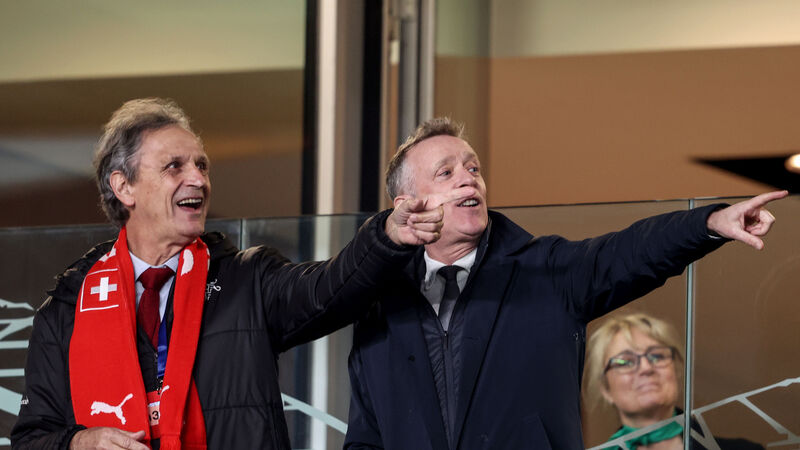Tommy Martin: History repeating as Jonathan Hill makes FAI a punchline once more

FAI Chief Executive Jonathan Hill (right). Picture: ©INPHO/Dan Sheridan
History repeats itself, first as tragedy, second as farce – except for the FAI, for whom it’s farce all the way.
It was, after all, a gnomic performance in front of an Oireachtas committee hearing that greased John Delaney’s descent down the garbage chute of sports administration. Five years on, an embarrassing turn in front of the politicos did for Jonathan Hill, Delaney’s permanent successor at the benighted association.









